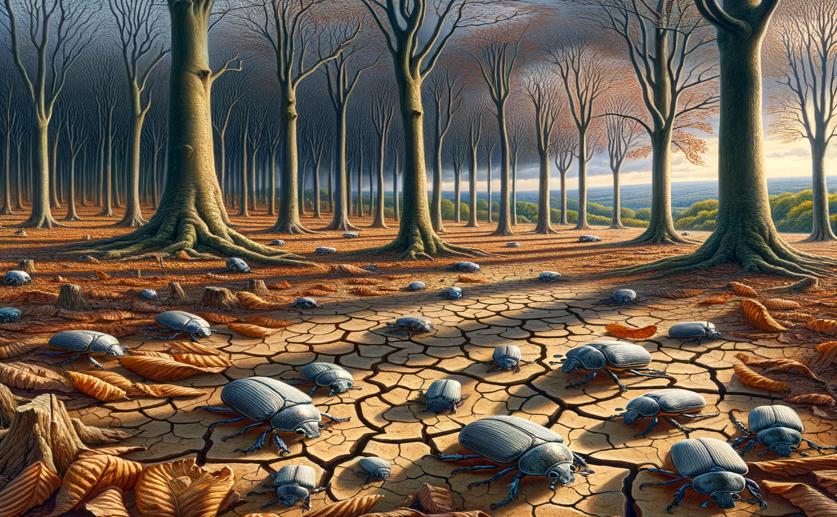
Declining Beetle Populations in Old Beech Forests After Severe Drought
Jim Crocker
26th June, 2024

Image Source: Natural Science News, 2024
Key Findings
- The study focused on the impact of recent droughts (2018–2020) on carabid beetle populations in Central European forests
- Carabid beetle abundance and biomass significantly declined by 51% and 65%, respectively, between 1999–2001 and 2020–2022
- Larger, less mobile carabid species were more severely affected by the drought conditions
EnvironmentEcologyAnimal Science
References
Main Study
1) Evidence for regional-scale declines in carabid beetles in old lowland beech forests following a period of severe drought
Published 25th June, 2024
https://doi.org/10.1007/s10980-024-01920-1
Related Studies
2) Local biodiversity change reflects interactions among changing abundance, evenness, and richness.
3) Ecosystem consequences of invertebrate decline.
4) It's a matter of design-how pitfall trap design affects trap samples and possible predictions.
5) Coverage-based rarefaction and extrapolation: standardizing samples by completeness rather than size.
Journal: Ecology, Issue: Vol 93, Issue 12, Dec 2012



 18th May, 2024 | Greg Howard
18th May, 2024 | Greg Howard